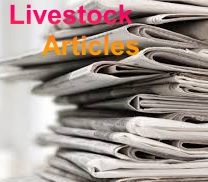Red Meat Producers Organisation
The National Emergent Red Meat Producers’ Organisation (NERPO) was established in 1997, to lobby and articulate the needs and aspirations of emerging red meat producers, and support and facilitate growth and development to allow them to participate meaningfully in the entire red meat value chain.
Aggrey Mahanjana, the first managing director of NERPO, was at the centre of the conception, establishment, growth and development of the organisation since September 1995. He saw the disparities between the emergent and commercial red meat sector in terms of access to resources, opportunities, support, skills and capacity and wanted to do something about it.
His efforts were supported by the national chairperson of the Red Meat Producers Organisation (RPO) at the time, Jannie Fourie, and the CEO of the RPO, Gerhard Schutte. Since then, the relationship between the RPO and NERPO was sealed through the establishment of the South African Federation of Red Meat Producers, a joint structure that looks after matters of common interest of established and emerging farmers.
Other role-players who made a valuable contribution to the formation of NERPO, were CMK Seape, a Free State representative who also served as the organisation’s first national chairperson, along with Wilson Muvhulawa, the representative of Limpopo, Moses Mnyamazeli Zengetwa, the representative of the Eastern Cape, pastor Henry Trevor Vass, representative of the Northern Cape and David Mothoagae, representative of the North West.
The initial funding for the establishment of NERPO came from various supporters including the Meat Board via the RPO and the National Development Agency, an entity of the Department of Social Development and the Meat Industry Trust.
NERPO, over time, has turned into one of the fastest growing commodity-based organisations, representing over three-million smallholder farmers.
Services of NERPO
NERPO’s primary goals are to commercialise the developing red meat sector and ensure meaningful participation of black individuals within the mainstream commercial agribusiness sector. By doing so, NERPO aims to enhance the long term sustainability of agriculture in South Africa and in effect, contribute to food security and the economic development of rural communities.
As an organisation, NERPO has been influencing government policy relating to assistance and support for smallholder livestock farmers, and been driving the transformation agenda of the red meat industry of South Africa as a whole, by amongst others lobbying access for land and equal market access.
National Emergent Red Meat Producers' Organisation of South Africa, over the years, has also established various development schemes: The Young Agribusiness Entrepreneurial Development Project aims to develop the business and farming skills of young farmers.
Their training and mentorship program is aimed at the development and job creation for unemployed agricultural graduates. Its bull and heifer project is a livestock improvement scheme aimed at improving the quality of breeding stock of emerging farmers.
The NERPO Livestock Credit Scheme is a livestock commodity based credit scheme, with the objective of providing soft loans to emerging livestock farmers for the purchase of any type of livestock, animal feed and medication, farm machinery and infrastructural improvements, as well as any form of enterprise development within the livestock value chain.
Several emerging livestock farmers have so far benefitted from NERPO’s lobbying and development interventions. The organization is currently contributing towards the establishment of blended finance policy, because of emerging farmers’ limited access to financial services in terms of credit and insurance.
NERPO Members
NERPO, as a development commodity organisation, has a constituency representing 3 million smallholder farmers. Initiatives are therefore financed through public funds and not by members.
NERPO membership has been structured according to the district municipalities. Individual members are not accepted, but only legal entities, such as co-operatives, private companies, associations, NPCs, trusts and so forth at a district level. District livestock associations then apply for membership to represent the needs of its members.
To qualify, the association should consist of at least ten livestock farmers, who should all be South African citizens. A once off joining fee is charged.
National Emergent Red Meat Producers' Organisation of South Africa has clear communication and information channels, which include a monthly newsletter and website. Provincial leaders conduct quarterly visits to the district association members to ensure all farmers are informed of what is happening at the organisation level and to identify and address the needs of the farmers at ground level.
The organisation has been engaging members through virtual communication since the outbreak of Covid-19, which has been difficult, but members have been adapting quicker to these forms of communication than expected. NERPO has also recently launched a NERPO YouTube Channel that will act as a source of information sharing mechanism going forward.
NERPO Emerging Red Meat Producers
The livestock industry is crucial in sustaining the economy of this country as it contributes towards food security, economic and environmental stewardship as well as socio-cultural needs of society.
In an industry overview, the RPO in 2018 estimated that there were 13,6 million cattle in South Africa of which more than eighty percent was in possession of the emerging sector. The number of sheep was estimated at 24,6 million of which 13% was owned by the emerging sector, whereas the number of goats were estimated at 5,9 million of which 73% was owned by the emerging sector.
It was further estimated that there were 613 662 households in the emerging sector that owned cattle across South Africa. The Eastern Cape was the province with the highest number of household owners at 200 538, followed by KwaZulu-Natal with 169 534 household owners and then Limpopo with 91 562 household owners.
Sheep were owned by 215 034 households, while there were 429 065 households that owned goats.
The main restrictions experienced by emerging red meat producers throughout the country, ranges from the lack of access to productive land with adequate infrastructure and with good carrying capacity to high input costs which relate to animal feed and veterinary services as well as energy costs. Stock theft is another difficulty preventing these farmers from reaching their full potential.
Their situation is exacerbated by global warming and climate change in the form of recurrent droughts, animal disease outbreaks and now the recent Covid-19 pandemic, which are all making it increasingly difficult to break out of the poverty trap and make ends meet.

.jpg)






